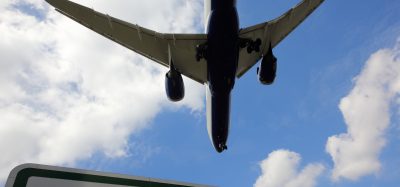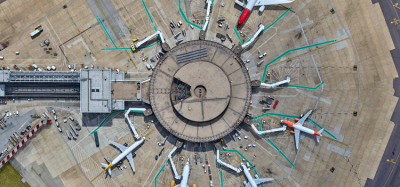Revitalising African aviation: A vision for connectivity, growth and sustainability
- Like
- Digg
- Del
- Tumblr
- VKontakte
- Buffer
- Love This
- Odnoklassniki
- Meneame
- Blogger
- Amazon
- Yahoo Mail
- Gmail
- AOL
- Newsvine
- HackerNews
- Evernote
- MySpace
- Mail.ru
- Viadeo
- Line
- Comments
- Yummly
- SMS
- Viber
- Telegram
- Subscribe
- Skype
- Facebook Messenger
- Kakao
- LiveJournal
- Yammer
- Edgar
- Fintel
- Mix
- Instapaper
- Copy Link
Posted: 22 December 2024 | | No comments yet
Adefunke Adeyemi, Secretary General of the African Civil Aviation Commission (AFCAC), outlined an ambitious and transformative vision for African aviation. Tasked with promoting safety, security, liberalisation, environmental protection and overall sustainability across the continent, Adeyemi’s insights highlight the challenges and opportunities that define the sector’s future.


As the specialised agency of the African Union (AU) for civil aviation, AFCAC’s mandate is to co-ordinate and implement policies and projects that enhance the aviation sector across all 55 African countries. The commission’s approach is continental, aiming to address key areas such as safety, security, environmental protection, connectivity and sustainable aviation.
“AFCA as the specialised agency for the African Union is basically the implementation arm on all matters of civil aviation for the African continent,” Adeyemi explained. “We cover all of the 55 countries, and our approach is a continental one to address safety, security, environmental protection, air transport, connectivity and sustainable aviation.”
The Yamoussoukro Decision and the Single African Air Transport Market (SAATM)
AFCAC is also responsible for implementing the Yamoussoukro Decision and the Single African Air Transport Market (SAATM). The Yamoussoukro Decision is a framework agreement designed to enhance connectivity by granting market access between African states for airlines, thereby reducing fragmentation and increasing connectivity.
The average age of Africa is 19 and the average age of aviation in Africa is 59“This is important for Africa because Africa is bigger than what you see on the map. It’s 13 million square miles and that means that you can fit the USA, China, Europe, Mexico and many other countries into the landmass that is Africa. In addition to that, we do not have alternatives in terms of road transport that covers the entire continent or rail transportation. Of course, sea transportation or waterways are not as integrated because many parts of Africa are landlocked, so the short to medium term solution for integrating the continent is air transport. That’s why it is the number one flagship project of the African Union, who is our principal organisation in terms integration projects for Africa, which is one of its objectives,” said Adefunke.
Addressing Africa’s aviation market share
The average age of Africa is 19 and the average age of aviation in Africa is 59.”
Despite being home to 12% of the world’s population, Africa accounts for only 2% of the global air traffic market. Adeyemi attributes this discrepancy to several factors, including limited market access, high operational costs and a lack of infrastructure.
“It’s a question of scale and scope,” she noted. “The scale of the continent and the challenge is huge, and then the scope of coverage of air transport is very small. We have a population of almost 1.5 billion now. There’s a huge mismatch. But if you look at other markets where you have huge populations, you see that aviation plays a role there. If you look at Africa, we have all of the ingredients to ensure that we can really integrate using air transport. This is the thing that is so interesting. All of the 54 countries in Africa have at least one runway, so the opportunity is huge for us to expand these numbers, but the scope has been limited over time primarily because of the market access issues. We’ve got to ensure that aviation is supported not as a charity case, but in terms of the enablers that make it survive. Africa is not a low-cost environment at all. It’s quite a high-cost environment primarily because of a lot of taxes, levies and fees.”
Despite these challenges, Africans have a growing propensity to travel.
“There is and there’s a growing middle class and a lot more people want to travel, but even with that, only 15% of the African population fly. Price is a real factor and most people do not engage because it is too expensive for them, and that shouldn’t be the case because aviation really is a necessity for Africa,” added Adefunke.
Efforts to liberalise and improve air links
AFCAC is working on several initiatives to liberalise and improve air links within Africa. One of the key projects is the Pilot Implementation Scheme of SAATM (SAATM PIP), which focuses on a group of 20 countries that are ready to accelerate the implementation of the Single African Air Transport Market.
“The idea is to take those countries that are ready and are willing to proceed with accelerating the implementation of the YD to move forward with them,” Adeyemi explained. “It’s an inclusive initiative because we start in phases, we take the first batch who are ready, and then we proceed with others. Given the fact that it’s taken 35 years for us to implement the YD in full, I think taking this approach is a good way of doing it.”
Visa regimes and non-physical barriers
“The opportunity is the SAATM, this is our main developmental imperative as an African continent. If we’re able to crack this, then a lot of things will follow in the short to medium-term.”
One significant barrier to connectivity is the visa regime. Many African countries require visas for other African nationals, which hampers the free movement of people. AFCAC is advocating for more open visa regimes to facilitate easier travel across the continent.
“Having an open visa regime is really important,” said Adeyemi. “We also want to reduce the impediments to travel, so the non-physical barriers – things like visas, high cost of operations and standardising and harmonising as much as possible. AFCAC has a target for this as well to increase connectivity on the fifth freedom basis from 15% in 2022 to 30% in 2025. What do I mean by fifth freedom? It is the ability of an airline to move from its base in one city to another city to pick up and drop off passengers and then to go onward to another city and then come all the way back doing the same thing. That’s really important for Africa because of the size, so the ability to be able to go from city to city on one ticket is really important to be able to bridge this gap of connectivity and reduce the fragmentation.”
Safety and security improvements
Safety and security are paramount in aviation, and Africa has made significant strides in these areas over the past decade. The Abuja Safety Targets, established in 2012, have been instrumental in improving safety standards across the continent.
“Once upon a time, safety in Africa was quite dire,” Adeyemi admitted, “but over time, safety in Africa has improved. Now, the global safety threshold was recently increased in 2022 by ICAO from 65% to 75%, and Africa is currently at just under 60% on average. We’d like to see that general figure improve.”
The approach AFCAC is taking is targeting the states that have a real need in terms of improving their safety in specific elements and providing technical assistance and capacity to support those states.
“We have an initiative called the African and Indian Ocean Inspector Scheme (AFI-CIS), where we co-ordinate a group of experts who have the experience from different individual African states through a co-ordinated approach through AFCA to support a state in need. We had nine AFI-CIS missions last year. We have about another nine or 10 programmed for this year and it’s working.”
Sustainability initiatives
Sustainability is another critical focus area for AFCAC. The commission is working on several initiatives, including the development, production and deployment (DPD) of Sustainable Aviation Fuel (SAF) in Africa. This initiative aims to involve Africa in the global effort to reduce aviation’s carbon footprint.
“We came up with an initiative last year, which we call the DPD for SAF,” Adeyemi explained. “The message there is that we – as an African continent – want to be involved, we want to be part of the solution. We see it as taking our rightful place. We want to produce SAF as well and not just be a source of feedstock, of which we have an abundance. We’ve identified six countries that have the potential to produce SAF and we also will identify the countries that have the necessary feedstock that are required for processing. The whole point is that everybody wins out of this so that Africa itself wins, but that we also support the rest of the world.”
Engaging the next generation
AFCAC is also focused on attracting the next generation of aviation professionals. The African Women and Youth in Aviation (AWAYA) initiative aims to empower young people and women to pursue careers in aviation.
“With AWAYA initiative, we have areas of intervention from mentorship to sponsorship to specific actions that we’re taking to excite the younger generation and so on and so forth.”
“We need to really ensure that more people come in,” Adeyemi emphasised. “The average age of Africa is 19 and the average age of aviation in Africa is 59. We need to bridge this gap.”
Improving passenger experience
Improving the passenger experience is another priority for AFCAC. The commission is working on establishing a network of focal points at key airports to address consumer protection issues and enhance the overall passenger experience.
“Consumer protection is one of the annexes and one of the regulatory instruments of the YD and the SAATM,” Adeyemi said. “We are focusing on setting up some kind of network of focal points in terms of the passenger experience and consumer protection issues across Africa, we’ve made a call for African states to support having some presence at most airports in Africa. In addition, we’ve recently established a dispute settlement mechanism, which is in Senegal where we’re based. The idea is that the different players including passengers, but also airlines and governments and so on, can bring it to us if there is a dispute around anything to do with the YD or SAATM. The approach will be through conciliation mediation or as the last resort arbitration. The whole idea is that there is a meeting of minds between two parties and these two parties are trying to seek a resolution the matter so that we can move forward.”
Overcoming fragmentation
One of the biggest challenges facing African aviation is fragmentation. AFCAC is working on various fronts to overcome this issue and build economies of scale that can support meaningful air transport across the continent.
“The opportunity is the SAATM, this is our main developmental imperative as an African continent. If we’re able to crack this, then a lot of things will follow in the short to medium-term. Of course, there are other areas of development for the continent, but if we’re able to crack this, then the issue of integration and connectivity would really be changed. And that would translate to not just travel but trade, but tourism and so on and so forth.”
Looking ahead
As AFCAC continues to implement its ambitious plans, the future of African aviation looks promising. By addressing key challenges and leveraging opportunities, the commission aims to create a more connected, sustainable and prosperous aviation sector for Africa.
“We’re making a direct impact on the socioeconomic development of Africa,” Adeyemi concluded. “Aviation is not just a specialised area; it’s an economic enabler and a social catalyst. It needs to do the same for Africa.”
About the interviewee


Credit: IAR
Adefunke Adeyemi was elected and appointed the Secretary-General of the African Civil Aviation Commission (AFCAC) resuming office on 1 September, 2022. AFCAC is the Specialised Agency of the African Union (AU) on all Civil Aviation matters and the Executing Agency of the Yamoussoukro Decision (YD) and the Single African Air Transport Market (SAATM). Her role is to promote safety, security, air transport liberalisation, environmental protection and overall sustainability of the African Air Transport sector across the continent.
With an international career spanning over 20 years, Adefunke is recognised as one of the 50 Most Inspirational Nigerian Women. She was recently honoured as one of the 200 globally Most Influential People of African Descent (MIPAD) in affiliation with the United Nations Decade for People of African Descent. She is also the 2021 Recipient of the Ato Girma Wake Lifetime Achievement Award for Services to African Air Transport and Trade development.
She studied Law at the University of Lagos, Nigeria and qualified as a Barrister and Solicitor of the Nigerian Supreme Court in 1998, holds a Master of Laws (LL.M.) from the prestigious University of Cambridge, United Kingdom and a Master of Business Administration (MBA) from Nanyang Business School, Singapore in collaboration with Wharton Business School, Philadelphia and Berkeley Hass Business School, California.
Related topics
Airlines, Passenger experience and seamless travel, Safety, Security, Sustainability
Related organisations
African and Indian Ocean Inspector Scheme (AFI-CIS), African Civil Aviation Commission (AFCAC), African Union (AU), International Civil Aviation Organization (ICAO)


















